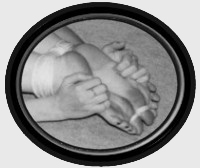Not today, I wouldn't think - but a hundred years ago, when Upton Sinclair wrote The Jungle and exposed what was going on in the meat packing industry? Almost certainly yes.

I imagine. For an accident of such a spectacular nature, I am pretty sure that you'd hear about it, and that the subsequent talk around it would push the people in charge of the factory to be careful. Equally disturbing as it is fascinating, in a Soylant Green kinda way.
Which brings us to an interesting point: industrialization and its corollary mass production. It is sort of inevitable, given the amount of people we need to feed, but it raises questions. My father still buys his chickens and fish alive from local farms, and kills them himself (it's actually a lot of fun; used to love that as a kid), before preparing them. So does my family in law, which in recent years has allowed me to partake in such activities, a delightful throwback to my childhood. I especially like gutting fish; I find it a relaxing process. When you do that, you're sure the food you're gonna cook and eat is fresh and relatively healthy, bar all the shit that gets sprinkled in the air or pumped into the soil by third parties, without the farmer's knowledge.
Two side notes to this. One is that as I traveled, I found that different countries have different acceptions of what "healthy food" is. Broadly speaking, people tend to like "standardized" and industrially sterilized food in the north of Europe, because they deem it to be germ-free. In the south of Europe, on the other hand, "healthy" means, natural "direct-from-the-farm" kind of products. The other observation is that industrial standards tend to vary a lot. In the US and the UK, it is considered acceptable to wash meat with chloride to kill all the germs in it, while in most parts of Europe that practice was considered (until recently) to be too much of a risk for the consumer, which led to a long-lasting ban on American chicken meat. Hilariously from a French perspective, some French cheeses are considered "biohazard" by US customs because of the high amount of bacteria that develop within them, and their importation is therefore banned as a result








 That almost made me give up eating hamburgers and hot dogs at the time.
That almost made me give up eating hamburgers and hot dogs at the time.






